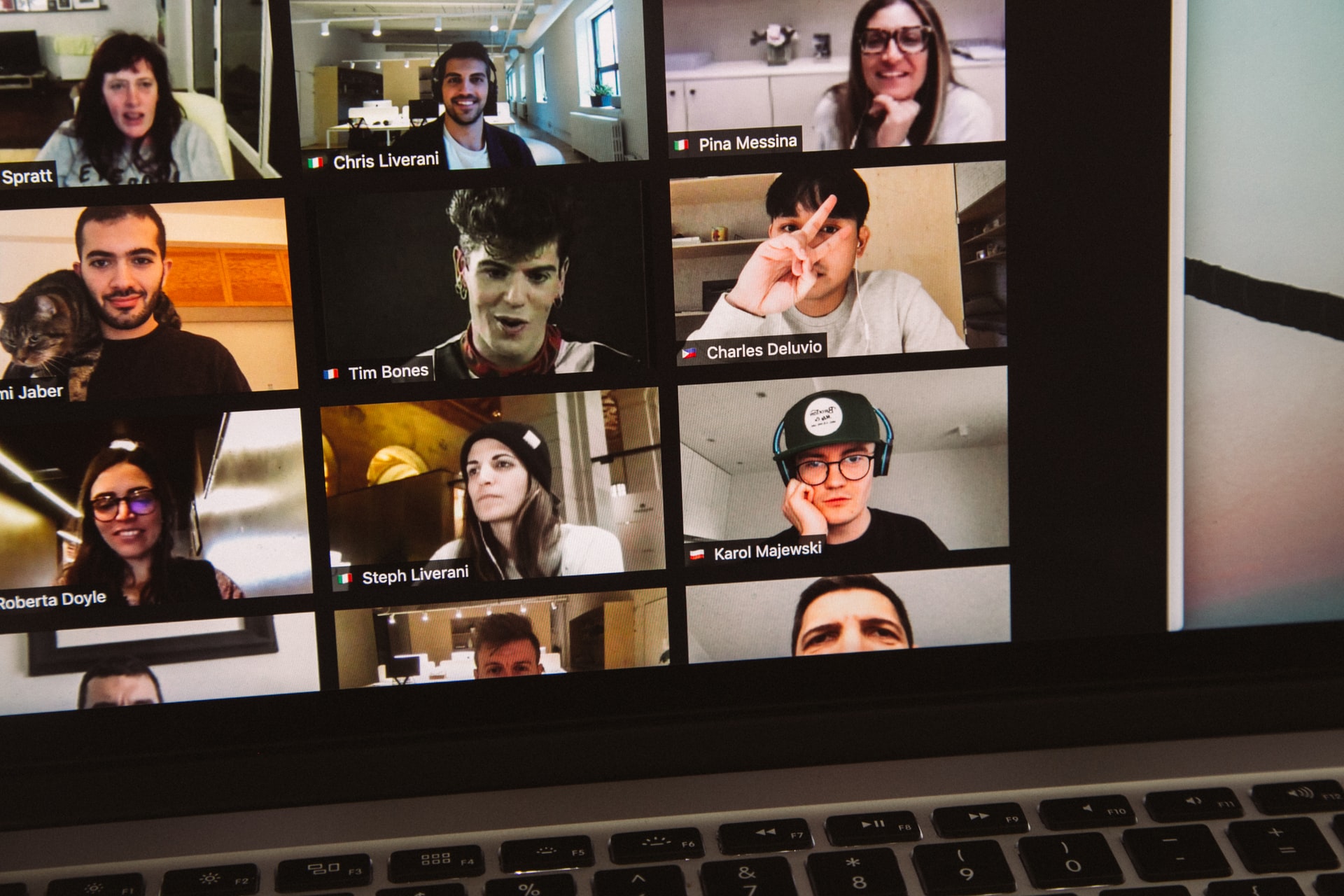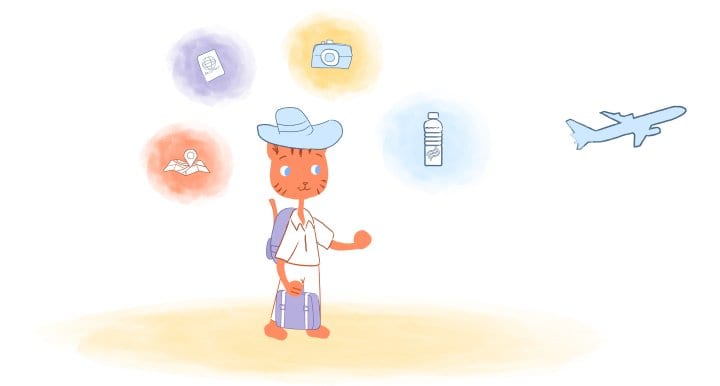

It may seem like a modern concept — but we’ve been striving for productivity for centuries. For example, one of the earliest mentions of productivity can be found in the classic economics text Wealth of Nations, written by Adam Smith in 1776.
What’s more, Benjamin Franklin came up with the first to-do-list in 1791. Even the day planner has been around since 1850. But, in the 21st Century, technology has almost made us obsessed with productivity.
Don’t believe me? Google “productivity” for the heck of it. You’ll get around 561,000,000 results!
On a daily basis, we’re bombarded with tools and hacks that promise to make us more productive. The problem is that eventually, we get burned out.
Then, the pandemic hit. For many of us, that meant we had “extra” time on our hands. With a scrapped daily commute, blank social calendar, and nothing else to do, we could be even more productive.
To make matters worse, this is what we were advised to by experts. Our social feeds were filled to the brim with people who suddenly became bakers, musicians, or contractors. There was no longer an excuse not to get things done.
What is toxic productivity?
“It’s tough enough to be productive in the best of times, let alone when we’re in a global crisis,” Chris Bailey, a productivity consultant and the author of “Hyperfocus: How to Manage Your Attention in a World of Distraction.” told The New York Times.
“The idea that we have so much time available during the day now is fantastic, but these days it’s the opposite of luxury,” he said. “We’re home because we have to be home, and we have much less attention because we’re living through so much.”
Next thing you know, you have new responsibilities and obligations. Eventually, you feel so overwhelmed that it’s like your underwater. And, you actually have less time to kick back and relax.
Even worse? You might have felt like a failure if you weren’t making the most of every minute in lockdown.
“It’s called toxic productivity,” explains expert nurse Emma Selby, clinical lead at health & fitness brand Results Wellness Lifestyle. “It can be defined as an obsession with radical self-improvement above all else.”
“Ultimately, it’s an unachievable goal,” adds Selby. Regardless “matter how productive you are, the result you are left with is a feeling of guilt for not having done ‘more.’”
Obviously, that’s counterproductive. More concerning is that this can impact your health and wellbeing during these uncertain times.
[Related: 25 Habits of Toxic People]
The signs of toxic productivity.
Not all productivity is toxic. Throughout the pandemic, a lot of us figured out how to get more done in less time. How so? By finally identifying our priorities and not dealing with distractions like in-person meetings.
A study from Prodoscore actually found that calendar time had dropped almost 23% vs. the year prior. However, from May to August 2020, productivity levels were up 5% when compared to 2019.
The downside? People were working through the weekend. The study reports that “year over year from May through August, employees are working 42% more on Saturdays and 24% more on Sundays in 2020 than in 2019.”
And, the latter is an example of toxic productivity. But, since this is different for everyone, here are some common red flags to determine if your productivity is toxic.
- It’s impacted your mental health. You feel more anxious, depressed, or restless.
- You’ve forgotten obligations and personal responsibilities. Examples include not remembering a family member’s birthday or skipping your workout, a healthy meal, or a good night’s sleep.
- Your relationships have become stained. Are you not fully “present” when interacting with others? Have you been told that you’re working too much? Have you alienated those closest to you, like not responding to texts or making time for them?
- You have unrealistic expectations. For instance, putting in a normal 8-day for work when you also have to homeschool your kids.
- Feeling like you’re on the verge of burnout. Usually, this involves feeling less energetic and focused.
- Attaching self-worth to hours worked. Just because you worked for 8-hours doesn’t mean you were productive. In fact, if you work more than 55 hours per week, productivity begins to drop sharply.
How to avoid toxic productivity.
Have you noticed any of the toxic productivity signs listed above? If you answered yes, don’t fret. There are simple ways to put a stop to toxic productivity before it interferes with your health, work performance, and relationships.
1. Don’t be productive, be smart.
Productivity is focusing on things that matter most to you. It’s those baby steps you’re taking to reach a goal. And, certainly not trying to keep with what you’re friends are posting on social media.
In short, don’t be productive just for the sake of being productive. Instead, be smarter and do more in less time by;
- Scheduling your most important work about your internal clock.
- Use Parkinson’s Law to your advantage, like cutting deadlines in half or gamifying tasks.
- Follow the 80/20 rule so that you’re focusing on the vital few.
- Manage your energy, not your time.
- Stop chasing perfection and think done.
- Re-use previous materials.
- Keep tabs on your emotional exhaustion.
- Keep your saw sharp by taking breaks and enhancing your skills.
- Set your ideal schedule and then work backward.
2. Adjust your goals and expectations.
I’ve enjoyed working from home — and for some people, they’re actually mote productive without commuting, meetings, and talkative co-workers.
At the same time, there also days when you aren’t going to get as much done at home. You may have children to take care of or catch-up on household chores. There will be certain tasks that you literally can not do at home since you don’t have the right tools or equipment.
Additionally, there’s only so much you can actually do in one day. Don’t overcommit yourself. And, be honest about what you can realistically accomplish.
3. Redefine what breaks are.
Taking breaks doesn’t mean that slacking off. These are vital if you want to stay fresh and rejuvenated. Besides, there are perks to being lazy every now and then.
Besides taking frequent breaks throughout the day, disconnect on the weekend. And, if you feel like you need a personal day, go ahead and take it.
4. Embrace simplicity.
“Whether you call it minimalism, Kondo-ing, or simple living, there are certainly benefits to this type of lifestyle,” writes Calendar Co-Founder John Hall. “Mainly, saving time and money. But, it’s also good for your health and productivity.”
Rather than adding more to your life, scale things back. When you do, you’ll enjoy the following perks;
- Having blank spots in your calendar allows time for self-reflection.
- You’ll reduce decision fatigue.
- You’ll finally have the chance to engage in self-care.
- There will be fewer misplaced items.
- It removes friction and conflicts from your life.
- It strengthens relationships, focus, and effectiveness.
- You’ll have a clean and organized home and workspace.
5. Establish clearly defined boundaries.
It’s not always possible. But, try to stick to a routine where you have a clear working and non-working hours. Even if your schedule is flexible or changing, leave work at work when you’re done.
Of course, this is a challenge. However, it’s not impossible. You could designate tech-free zones in your home, put your phone on “do not disturb,” set time limits on email, or ask a family member to hold you accountable.
6. Focus on positive self-talk.
“Do you define your sense of self-worth by how productive you are?” asks Dr. Therese Mascardo, Founder of the L.A. Digital Nomads, and CEO and founder of Exploring Therapy. “If so, you may find yourself caught in a cycle of chasing accomplishments that give you a temporary sense of worth until that wears off and you need yet another accomplishment to make you feel valuable.”
“To heal your self-talk, start seeing that your value is not in what you produce or accomplish, but in who you are,” advises Dr. Mascardo.
“Ask yourself, ‘Would I have these same expectations for someone I care for deeply?’” No? “Then you shouldn’t have these expectations for yourself, either.”
In fact, get into the habit of talking to yourself like you would a friend. And, if you’re really struggling with self-talk, get support from a therapist. They can help “you heal toxic narratives that have kept you stuck in a cycle of addiction to productivity.”
7. Don’t compare yourselves to others.
“Social media is always a two-edged weapon,” writes business analyst Man To Ip. “On one hand, social media like LinkedIn allow us to explore opportunities like never before. With the help of these tools, it is way easier nowadays to expand our network and get the latest information from companies.”
On the other hand? “These platforms promote a kind of competition among peers or even among strangers.”
“During this lockdown period, it is common to see that many people posting what online courses they have finished, what skills they have picked up, or generally ‘how they have used this period wisely,’” he adds. “Don’t get me wrong; I am not saying that we should not equip ourselves with various skills or we should not give advice to other people.”
“Overall, these feeds have no problem at all, but toxic productivity comes in when we over-compare ourselves with others because of this information. It is, of course, good to have done five online courses in a month, but by no means you are a ‘loser’ simply because you have just done three courses instead of five.”











Deanna Ritchie
Editor-in-Chief at Calendar. Former Editor-in-Chief and writer at Startup Grind. Freelance editor at Entrepreneur.com. Deanna loves to help build startups, and guide them to discover the business value of their online content and social media marketing.